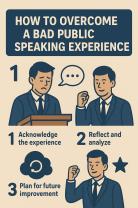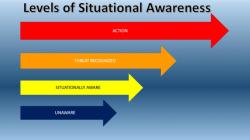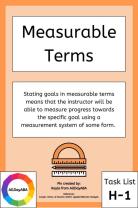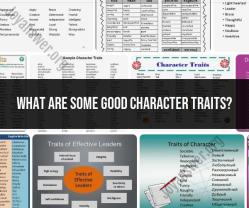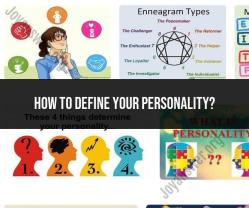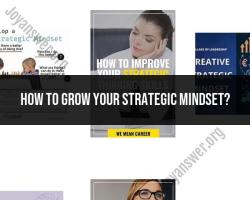How to master emotional intelligence?
Mastering emotional intelligence involves a blend of self-awareness, self-regulation, empathy, and social skills. Here's a learning path to help you develop and master emotional intelligence:
1. Self-Awareness:
- Mindfulness Practice: Engage in mindfulness exercises to observe your thoughts and emotions without judgment.
- Journaling: Reflect on your emotions, triggers, and patterns to understand your reactions better.
- Personality Assessments: Take tests like Myers-Briggs Type Indicator (MBTI) or Emotional Intelligence Appraisal to understand your tendencies.
2. Self-Regulation:
- Emotion Regulation Techniques: Learn techniques like deep breathing, meditation, or progressive muscle relaxation to manage emotions.
- Stress Management: Practice stress reduction techniques to handle pressure and maintain emotional balance.
- Anger Management: Develop strategies to control anger and respond rather than react in challenging situations.
3. Empathy:
- Active Listening: Practice attentive listening to understand others' perspectives without judgment.
- Put Yourself in Others' Shoes: Develop the habit of seeing situations from others' viewpoints to build empathy.
- Cultural Sensitivity: Learn about different cultures to better understand and respect diverse perspectives.
4. Social Skills:
- Communication Skills: Enhance verbal and non-verbal communication to convey emotions effectively.
- Conflict Resolution: Learn strategies for resolving conflicts peacefully and constructively.
- Building Relationships: Focus on networking, teamwork, and collaboration to build strong relationships.
Additional Tips:
- Feedback Seeking: Be open to feedback to understand how others perceive your emotions and behaviors.
- Continuous Learning: Read books on emotional intelligence, attend workshops, or take online courses.
- Practice Emotional Intelligence Daily: Apply what you've learned consistently in various situations.
Recommended Books:
- "Emotional Intelligence" by Daniel Goleman: A foundational book on the subject.
- "Daring Greatly" by Brené Brown: Focuses on vulnerability and its connection to emotional intelligence.
- "Nonviolent Communication" by Marshall B. Rosenberg: Helps in improving communication and empathy skills.
Online Resources:
- Coursera, Udemy, and LinkedIn Learning offer courses on emotional intelligence.
- Apps like Headspace or Calm provide guided mindfulness and meditation exercises.
Application and Reflection:
- Regularly apply your learning in real-life situations.
- Reflect on your progress periodically to identify areas for improvement.
Remember, mastering emotional intelligence is an ongoing process that requires practice, patience, and self-reflection. Start small, be consistent, and celebrate your progress along the way!
There are a number of strategies and techniques that can be used to aid in mastering emotional intelligence. Here are a few of the most effective:
- Practice self-awareness: This means being aware of your own emotions and how they affect your thoughts and behaviors. It can be helpful to keep a journal of your emotions and to pay attention to your physical sensations, such as your heart rate and breathing.
- Develop self-regulation: This means being able to manage your emotions and impulses. This can be done through a variety of techniques, such as relaxation exercises, mindfulness, and meditation.
- Develop empathy: This means being able to understand and share the feelings of others. This can be done by listening attentively, putting yourself in other people's shoes, and trying to see things from their perspective.
- Develop social skills: This means being able to interact effectively with others. This can be done by building strong relationships, communicating assertively, and resolving conflict effectively.
There are also a number of practical steps that individuals can take to improve their emotional intelligence. Here are a few examples:
- Take an emotional intelligence assessment: This can help you to identify your strengths and weaknesses in emotional intelligence.
- Set goals for yourself: Decide what you want to improve in your emotional intelligence and make a plan to achieve it.
- Read books and articles on emotional intelligence: There are a number of resources available that can teach you about emotional intelligence and how to improve it.
- Take a class or workshop on emotional intelligence: This can be a great way to learn and practice emotional intelligence skills in a supportive environment.
- Seek feedback from others: Ask friends, family, and co-workers for honest feedback on your emotional intelligence.
- Practice mindfulness: Mindfulness is a practice that can help you to become more aware of your thoughts, feelings, and sensations. This can be a great way to improve your self-awareness and self-regulation.
- Journaling: Keeping a journal can help you to track your progress and identify any areas where you need to improve.
- Exercise: Exercise has been shown to have a number of benefits for emotional intelligence, including reducing stress and improving mood.
- Get enough sleep: When you are well-rested, you are better able to manage your emotions and interact effectively with others.
- Eat a healthy diet: Eating a healthy diet can help to improve your mood and your overall well-being.
Improving your emotional intelligence can take time and effort, but it is a worthwhile investment. By following these strategies and techniques, you can develop the skills you need to succeed in all areas of your life.
Here are some practical steps or exercises that can be used to improve emotional intelligence mastery:
- Practice active listening: Active listening is a skill that can help you to better understand and connect with others. When you are actively listening, you are paying attention to what the other person is saying and trying to understand their point of view.
- Practice self-disclosure: Self-disclosure is the act of sharing your own thoughts, feelings, and experiences with others. This can help to build trust and rapport with others.
- Practice assertiveness: Assertiveness is the ability to express your thoughts and feelings in a clear and direct way, while still respecting the rights and feelings of others.
- Practice managing conflict: Conflict is a normal part of life, but it is important to be able to manage it in a healthy way. This means being able to communicate effectively with the other person, to identify the source of the conflict, and to find a solution that works for both of you.
By practicing these steps and exercises, you can learn to manage your emotions effectively, build strong relationships, and achieve your goals.


